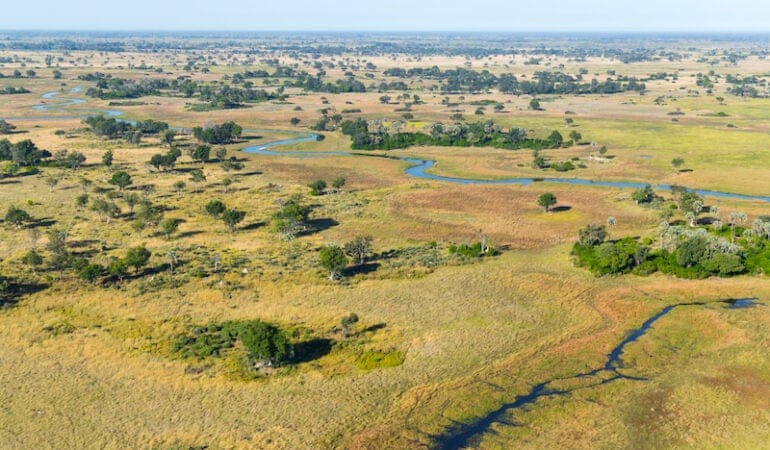
Global Conservation
The onset of the pandemic led the International Land Conservation Network (ILCN) to recast plans for a global conservation congress earlier this year, shifting from an in-person gathering for 300 people in Barcelona to a series of virtual webinars. Like many organizations, ILCN saw a surprising benefit emerge from this unexpected change of plans: its webinar series received more than 1,100 registrations from conservation practitioners in 83 countries, and targeted sharing of series recordings in countries including China has expanded that reach into the thousands.
That experience led ILCN to recognize an opportunity: combining targeted, regional outreach with the global reach enabled by virtual tools and strategies could help strengthen engagement throughout the land conservation community. This fall, the organization appointed regional representatives on six continents. “By bringing on this core group of experienced regional representatives, we’re hoping to encourage a more robust exchange of expertise and ideas,” said Chandni Navalkha, program manager for Land Conservation at the Lincoln Institute.
The newly appointed representatives will utilize their deep experience in private and civic land conservation to build upon existing relationships in each region — through meetings and conversations held in person or virtually as the evolving global context allows — and forge new connections with leading practitioners and experts. They will bring their expertise to the broader ILCN community through webinars, newsletter articles, and other channels and, in turn, share resources, news, and strategies related to private and civic land conservation in other geographies with key stakeholders in the region they are representing. In China, for example, regional representative Shenmin Liu will join the steering committee of the China Civic Land Conservation Alliance (CCLCA), where she will share the evolving strategies and policies through which civic conservation efforts will be included in the planning for a new Chinese national park system.

“We are honored to have recruited such a diverse and accomplished group of conservationists to serve as our regional ambassadors,” noted Jim Levitt, director of the ILCN. In early October, Levitt hosted a virtual meet and greet that provided a forum for the representatives to introduce themselves to each other and to members of the ILCN network from around the world. The representatives each spoke for a few minutes about their work, as well as the challenges and opportunities ahead:
- Europe: Tilmann Disselhoff. Disselhoff manages the European Land Conservation Network (ELCN), an EU-wide network of organizations active in private land conservation that “wouldn’t have been possible without the help of ILCN,” he said. Disselhoff spoke about the power of collaboration and about plans for expanding the work of ELCN.
- Australasia: Cecilia Riebl. A policy advisor for Australia’s Trust for Nature, Riebl spoke about obstacles and progress in the region: “This sector has a profound and compelling cause: it is absolutely critical to addressing the global biodiversity crisis, and increasingly will need to do this in dynamic ways, by introducing new actors to conservation and finding creative ways to finance it.”
- Latin America: Hernan Mladinic. Mladinic, of Chile, has worked in conservation for more than 30 years and recently concluded a 10-year stint as executive director of Tompkins Conservation, which promotes landscape-scale conservation in South America. In the context of COVID and climate change, Mladinic said, “conservation will have to strategically link social, environmental, and economic issues.”
- Asia: Shenmin Liu. A research analyst at the Lincoln Institute who grew up in Beijing, Liu described China’s conservation efforts and the tension between conservation and economic growth in developing countries in Asia. Liu sees a “huge need for multidirectional knowledge exchange” and will work with regional NGOs ahead of the meeting of the Conference of the Parties (COP-15) of the Convention on Biological Diversity (CBD)in Kunming, China, in May 2021.
- North America: Shawn Johnson. As managing director of the Center for Natural Resources and Environmental Policy at the University of Montana, Johnson was instrumental in helping to launch the Lincoln Institute’s Large Landscape Peer Learning Initiative. “We think about land conservation as something we do on the side,” he said. “But conservation is critical to the health and well being of our society . . . how do we create the connections that will help us heal as we move forward?”
- Africa: Kiragu Mwangi. Mwangi, a senior capacity development manager for BirdLife International who is currently based in the United Kingdom, grew up in Kenya and says stronger collaboration is needed between land conservation groups in Africa and elsewhere. “Partnerships are made even more rich when we collaborate and partner with people from different backgrounds,” he said, “for it is in diversity that we draw on the great wealth of knowledge and experiences to help achieve greater impacts with our work.”
Citing the urgency of advancing innovation in land conservation in light of the upcoming Convention on Biological Diversity COP-15 meeting in China, as well as the growing momentum behind the global campaign to protect 30 percent of the earth’s surface by 2030 (30×30), Levitt said the virtual gathering, and the promise of an increasingly connected and collaborative approach to conservation, gave him hope. “It’s not only humbling to be in this group, I hope it’s also emboldening,” Levitt said at the conclusion of the meet and greet. “To know there is a group of people all over the world with the courage and strength and intelligence to prepare a world our great-grandchildren can enjoy . . . . The more connections we make now, the more connections we will make going forward.”
Katharine Wroth is the editor of Land Lines.
Photograph: Aerial View over Okavango Delta in Botswana. Credit: Gfed/Getty Images Plus.
Related
 International land Conservation Network Launches Webinar Series
International land Conservation Network Launches Webinar Series

